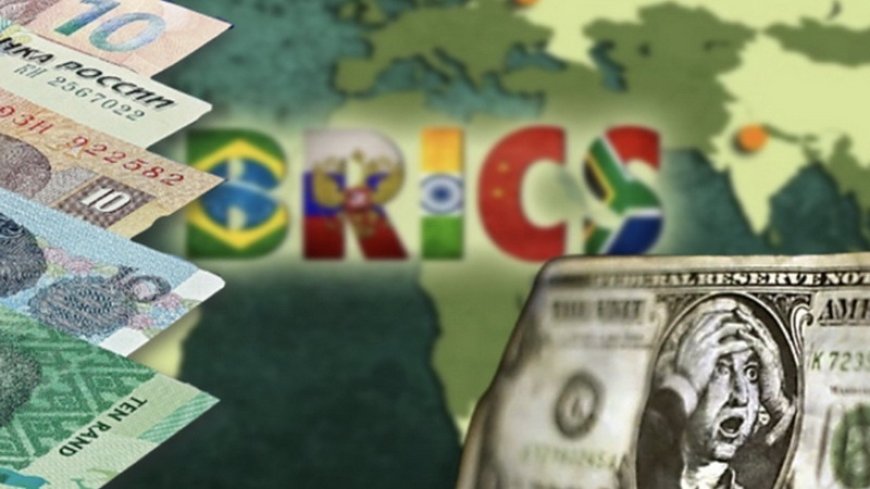15th BRICS summit: 40 percent of the world's population wants to completely remove the dollar from their commercial exchanges
15th BRICS summit: 40 percent of the world's population wants to completely remove the dollar from their commercial exchanges

The 15th three-day BRICS summit is being held in South Africa, where the country's vice president, whose country is hosting the meeting, has said that the meeting will focus more on discussing how to reduce the use of dollars in economic transactions and trade of member countries. The meeting of the leaders of the five BRICS countries and the heads of other countries that requested to join the community began in Johannesburg, South Africa yesterday, Tuesday, August 22. President Cyril Ramaphosa of South Africa President Cyril Ramaphosa of South Africa said at the opening of the meeting that the group has changed the face of the world economy and is making great efforts to strengthen economic relations between member countries. He said the BRICS countries are a quarter of the world's economy, they own one fifth of the world's trade, they have 40 percent of the world's population and that the amount of trade between the member countries reached more than 162 billion dollars last year. President Luiz Lula da Silva of Brazil President Luiz Lula da Silva of Brazil also said in his speech at the meeting that the BRICS group and countries in the southern world have achieved greater economic prosperity than other countries, and that they support business based on integrity. He emphasized that BRICS is planning to establish a special system to use national currencies in commercial exchanges between member countries.
The BRICS group is currently close to surpassing the G7 economically and according to the assessment, the share of the BRICS member countries in the gross national income will exceed 50 percent by 2030. Currently, the five BRICS member countries contribute approximately 31.5 percent of the gross national income nation in the world; in a situation where the G7 countries' share of that income is less than 30 percent. It is expected that the BRICS countries' share of the world's gross national income will exceed 50 percent by 2030, thus strengthening the BRICS goals in that field. It is clear that the BRICS group will witness the expansion and large increase of its members soon by joining the group important countries such as the Islamic Republic of Iran, Saudi Arabia, Argentina, Egypt and the UAE, while several other countries are preparing to join the Welfare Bank New of the group. These changes prove that the strength and influence of the BRICS group in the world is growing and may pose a great challenge to the G7 group in the future. On the other hand, the interests of the BRICS countries do not end only in trade, but are based on the political belief that the world should be multi-sided in influence and decision-making. The Islamic Republic of Iran, Algeria, Argentina, Egypt, Indonesia, Saudi Arabia, Turkey, the United Arab Emirates and many countries are in the process of joining the group with the most economic influence in this era of global economic impact. Brazil, Russia, India, China and South Africa are the main members of BRICS.













































